On 24 October 2019, Central Organization Department announced a series of senior leadership reshuffle in China’s central SOEs. To request more details on the transfers, please contact us.
On 21 October 2019, Tianjin’s anti-corruption watchdog announced on its website that the already-dismissed Tianjin Bureau of Statistics Director-General Wu Junding (武军定) is under investigation. Born in November 1964, Wu was only 54 when he was dismissed in July 2019, from Tianjin Bureau of Statistics Director-General position, an anomaly among departmental/prefectural-ranking officials, who would usually retire in their late 50s or early 60s. This deviation from common practice suggests that Wu’s dismissal might be the result of his wrongdoings. Before the dismissal, Wu spent the entire 30 years of his career, from 1989 to 2019, in Tianjin Bureau of Statistics working on different sectors including infrastructure, fixed asset investment, and industry and transportation. He was appointed deputy director-general in 2004, and then director-general in 2016.

Guangdong Vice Governor Ouyang Weimin (欧阳卫民) appointed new China Development Bank (CDB) Governor. Although now widely considered one of the “financial vice governors”, Ouyang Weimin was actually appointed to local government long before the recent cohorts of ex-bankers in a different way. Ouyang was transferred from People’s Bank of China (PBOC)’s Payment System Department Director position to Guangzhou city as vice mayor in 2011—essentially a same-level transfer, not a promotion—in an effort to help Guangzhou with its effort to become a regional financial center, elevating the city’s status as “national central city”. His role in Guangzhou gradually shifted over the years, as he was promoted into the Guangzhou CCP Standing Committee (CCPSC) overseeing the work of Guangzhou’s Zengcheng city in 2014, a job that essentially deviated him from his financial background. Ouyang was subsequently promoted to be Guangzhou Vice Party Secretary in 2016 and Guangdong Vice Governor in 2018.
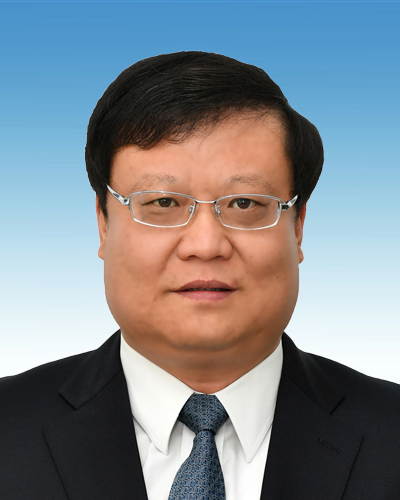
On 11 October 2019, it was announced by Hunan CCP Committee that former Tianjin Vice Mayor Yao Laiying (姚来英) has been appointed Hunan CCP Standing Committee (CCPSC) member and Hunan State-owned Asset Supervision and Administration Commission (SASAC) Party Secretary. Before this latest appointment, Yao was the youngest vice mayor in the northern port city. He spent his entire career until now in Tianjin, in the city’s finance system all the way up to reach the position of Tianjin Bureau of Finance Director-General in 2013. He was appointed Tianjin Vice Mayor in January 2018 during the first round of vice-provincial appointments across China right after the 19th Party Congress. Yao is the second “southward” Tianjin official in the past year. In November 2018, former Tianjin Vice Mayor Zhao Haishan (赵海山) was appointed Hubei Vice Governor.
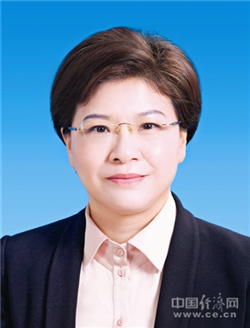
Following former Nanjing Mayor Lan Shaomin (蓝绍敏)’s promotion to Jiangsu CCP Standing Committee (CCPSC) and appointment as Suzhou Party Secretary, the province has appointed Taizhou Party Secretary Han Liming (韩立明) as Lan’s successor in Nanjing on 8 October 2019. Han was former Changzhou Party Secretary (1984-1994) Chen Yuying (陈玉英)’s secretary in Chen’s last three years in Changzhou. Changzhou was a model for small- and median-sized cities across China back in the 1980s, for its unique, innovative path of development in light industry, electronics, chemical industry, pharmaceuticals, and construction materials. As a result, Chen Yuying became the first and only prefectural party secretary introduced into CCP Central Committee without taking any concurrent vice-provincial or provincial job. Chen was member of 13th and 14th Central Committees, which gave Han a head-start in her political career. Han became Taizhou Party Secretary in April 2018, and Taizhou is her first prefectural party secretary post. After the latest promotion to Nanjing, Han also became the second female provincial capital mayor across China—the other being incumbent Hefei Mayor Ling Yun (凌云), who was appointed in 2016. Yet, Nanjing is of vice-provincial ranking and Hefei is only of prefectural ranking—Han is therefore the only female. vice-provincial mayor in China now.

On 28 September 2019, former Everbright Bank Governor Ge Haijiao (葛海蛟) was appointed Hebei Vice Governor. Ge spent a major portion of his career in Agricultural Bank of China (ABC), and was only confirmed as Everbright Bank Governor by CBIRC in January 2019. Hebei has been lacking a vice governor since former vice governor Li Qian (李谦) was ousted in August 2019.
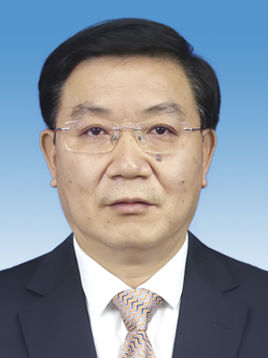
On 26 September 2019, former Sichuan Development Holding Company Chairman Wang Fengchao (王凤朝) was appointed Sichuan Vice Governor, filling the vacancy left by ousted former Sichuan Vice Governor Peng Yuxing (彭宇行). Sichuan’s provincial leadership has been short of one vice governor since April 2019, when former Sichuan Vice Governor Peng Yuxing was investigated by Central Commission for Discipline Inspection (CCDI). Wang Fengchao spent his entire career in Sichuan, initially at Sichuan Changhong Electric Company, China’s second-largest television manufacturer. Wang was critical in making the company a leading brand of consumer electronics in China. Wang was appointed Neijiang Vice Mayor in 2005, and then transferred to become Sichuan State Asset Supervision and Administration Commission (SASAC) Vice Chairman in two years. He was appointed Sichuan Airlines General Manager in 2010 and then became chairman of the airline. Wang was appointed Sichuan Development Holding Company Chairman in July 2015, leading the provincial state-owned asset management company. In 2018, Sichuan Development Holding Company became Sichuan’s first SOE with over CNY one trillion total assets, under Wang’s watch. Wang has also been taking a concurrent appointment as Sichuan Financial Holding Company’s Chairman since February 2017. The company is Sichuan’s first financial holding platform. In April 2019, a Sichuan SOE reform ETF was listed on Shenzhen Stock Exchange, with Sichuan Financial Holding Company taking the leading role. It is the first SOE reform ETF in Midwest China.
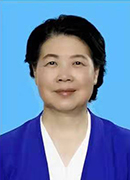
On 26 September 2019, Hubei government appointed former Hubei Organization Department Deputy Head Xiao Juhua (肖菊华) as Hubei Vice Governor, succeeding Chen Anli (陈安丽), who was appointed Hubei CCPSC member and Organization Department Head in May. A female official is required at every level of government in China as a demonstration of gender equality. With Chen Anli’s departure from Hubei government, the province has been lacking a female vice governor for four months, primarily because it is hard to find a competent female official—although it is required for all levels of government to have female officials, female officials are still systematically discriminated in China’s cadre promotion.
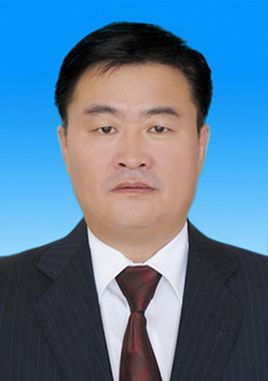
On 26 September 2019, Inner Mongolia CCPSC member, Tongliao Party Secretary Li Jiexiang (李杰翔) was transferred to Qinghai as Vice Governor. Qinghai has had a vacant seat for an executive vice governor since May 2019, when former Qinghai CCPSC member and Executive Vice Governor Wang Yubo (王予波) was appointed Yunnan Vice Party Secretary. Having the Inner Mongolia CCPSC ranking, Li Jiexiang is most likely the successor of Wang Yubo.

On 17 September 2019, former All-China Federation of Returned Overseas Chinese Vice Chairman Li Bo (李波) went to Chongqing Securities Regulatory Bureau for an inspection tour as Chongqing municipal government CCP committee member, indicating that he has been appointed as Chongqing Vice Mayor. His appointment was later confirmed on 26 September 2019. Li Bo has an extraordinary background, for that he was a “returned” official who went to the United States and earned a Ph.D. in economics from Stanford University and a J.D. from Harvard University. At Stanford, Li studied under Nobel Laureate Kenneth Arrow. Li started his career as a lawyer in New York, before returning to China in 2004 to the PBOC—China’s central bank—as Department of Treaty and Law Deputy Director. He was appointed Department of Treaty and Law Director in 2008 at age 36, becoming one of the youngest full-departmental officials at the time. In that role, Li was key to the legislation of anti-money laundering and foreign exchange management, as well as to the reform of state-owned commercial banks. Li was also a key official in RMB internationalization, during his tenure at PBOC’s Department of Monetary Policy II. Chongqing has been lacking a vice mayor since former vice mayor Li Dianxun (李殿勋) was appointed Hunan CCPSC member in May 2019.
